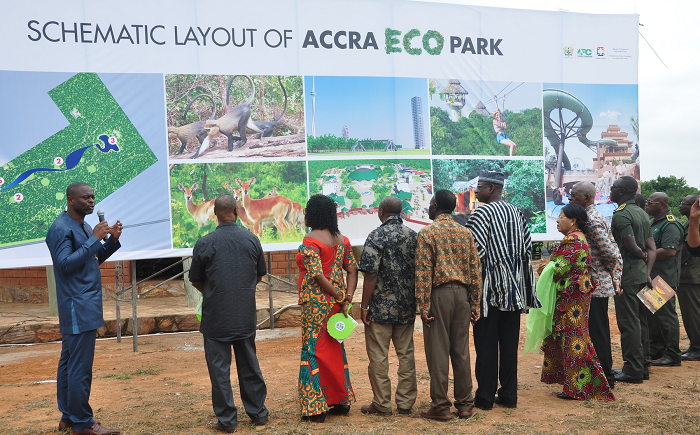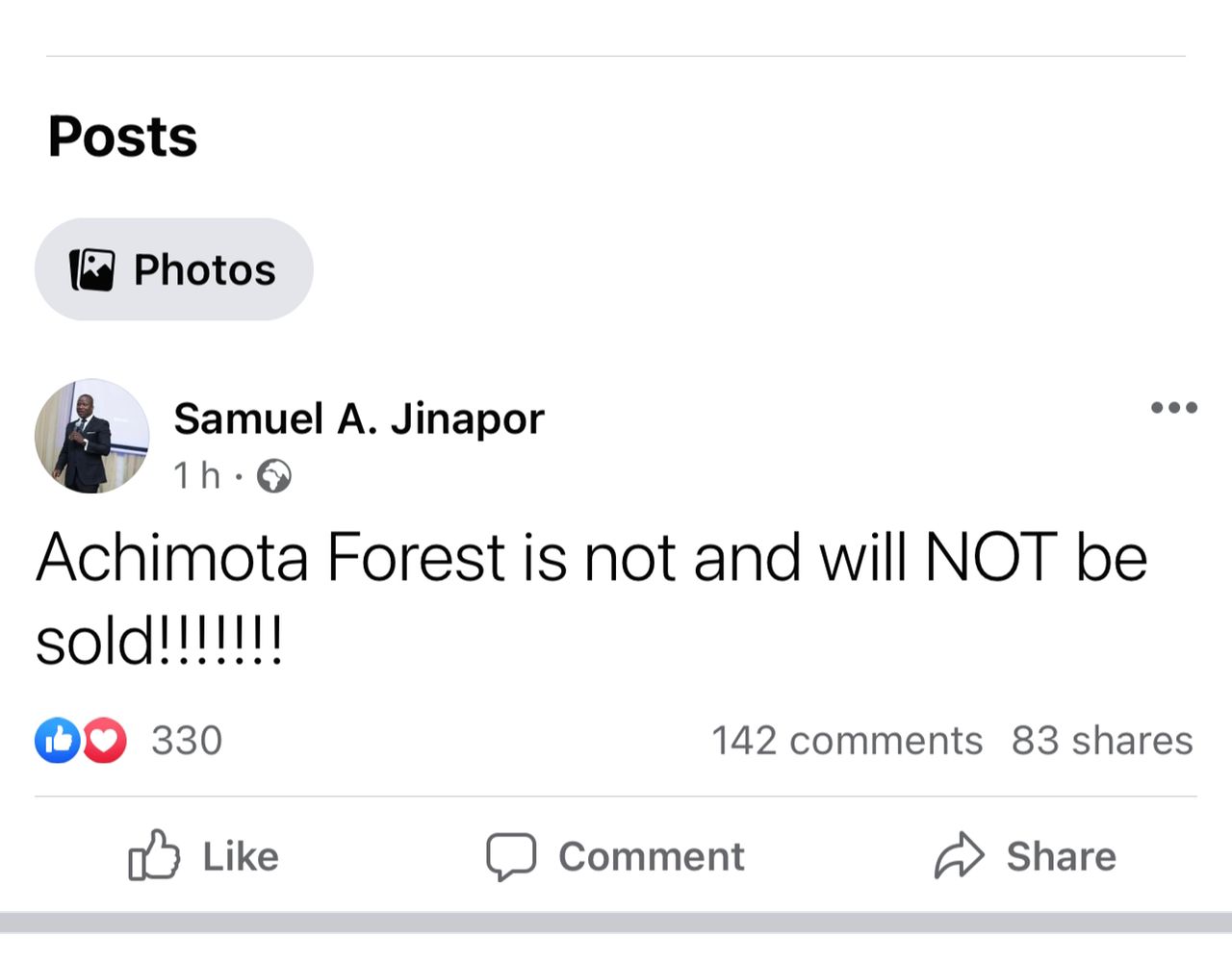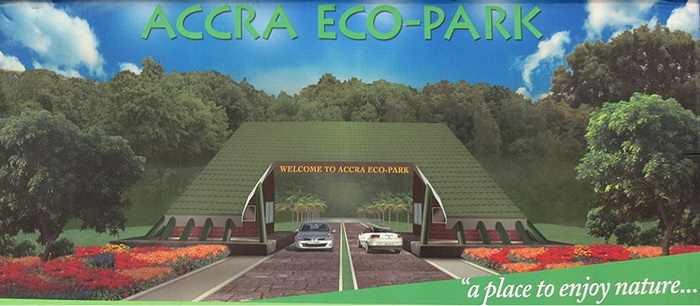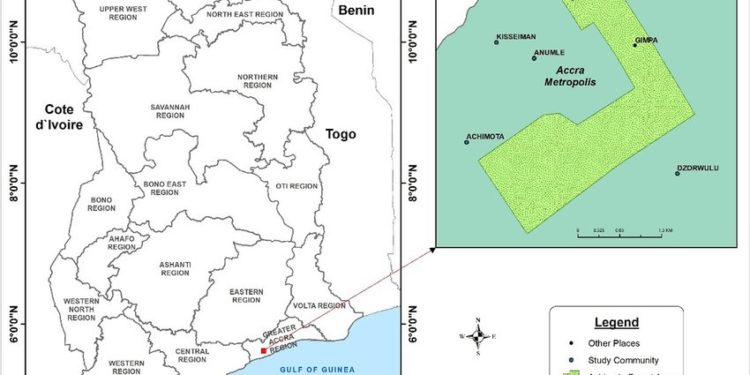Parts of Achimota Forest no longer a forest reserve
Parts of the Achimota Forest in Accra is no longer a forest reserve.
It foll
This means effective May 1, 2022, parts of the Achimota Forest Reserve is no longer a forest reserve.
President Akufo-Addo under Executive Instrument 144 has lifted the 1927 classification of the Achimota Forest as a Forest Reserve.
This is to pave way for a redesign, reclassification and development of the area.

The Executive Instrument was gazetted on behalf of President Akufo-Addo by the Minister of Lands and Natural Resources, Samuel Abu Jinapor.
The Ministry of Lands and Natural Resources is yet to fully comment on the new development.
But the Sector Minister, Samuel Abu Jinapor in a terse post on Facebook Tuesday evening said “Achimota Forest has not been sold and will not be sold.”

The Achimota Forest Reserve is the only existing urban forest in Accra sandwiched by Achimota School to the West, Ghana Institute of Management and Public Administration (GIMPA) to the East, Christian Village to the North and the George Walker Bush Motorway to the South.
There has been some public reactions since the gazette started circulating Tuesday morning [May 17, 2022].
Some have expressed concern about the fate of the only extensive green area in Accra on whether the green is going to give way for concrete.

Forestry Commission reviews Achimota Eco-park contract
Meanwhile the Forestry Commission in 2018 announced that it was reviewing the terms for the construction of the Achimota Eco-Park with the investor.
The decision, the commission said was part of due diligence it was carrying out to ensure that the project was executed and not abandoned midway.
Contrary to information in the public domain then, the commission said it had no intention of changing the investor, who was investing $1.2 billion in the project, whose sod cutting was performed on August 19, 2016.
According to the commission, it had engaged the investor and was trying to do everything possible to ensure that the project took off.
Read also: Forestry Commission reviews Achimota Eco-park contract
It will be recalled that Graphic Online published in 2018 that the Achimota Eco-Park project was expected to dramatically improve the Achimota Forest, curtail encroachment and eliminate the domestic and industrial waste dumped in the area.
It should have started in 2016 but had to be put on hold because of a legal action initiated by four Ghanaians who were of the view that the deal would harm the environment and pose health and other risks to residents of Accra.
But the then President John Dramani Mahama, in a speech read on his behalf, said the case had been “settled amicably and the project is back on track”.
First phase
The first phase of the Accra Eco-Park Project, the city’s only green belt, was expected to be completed in 24 months to add to the country’s major national parks — Kakum in the Central Region and Mole in the Northern Region.
The lease agreement allows Aikan Capital to design, build and operate the facility for 10 years.
Features
The project involves the construction of amusement parks, orchards, arboretum, wildlife safaris, museums, eco-commercial enclaves and eco-lodges but with little disruption to the natural vegetation as possible.
It will also have a spiritual enclave to cater for spiritual/worship activities that send more than 180,000 people annually to the Achimota Forest.
Apart from the recreational facilities, the development partners have plans for conference rooms with high-seating capacities targeted at corporate bodies. They will be sited outside the main forest area.
Achimota Forest Reserve
The Achimota Forest Reserve was gazetted (as a forest reserve) in 1939 with objectives, including serving as a field laboratory research for schools in Accra, providing a place for recreation, conserving biological diversity, as well as playing the ecological role of purifying the air in the city.
However, years of unbridled encroachment has reduced the size of the forest from its original 495 hectares to 355 hectares and portions turned into waste disposal sites.
In the speech read on his behalf, then President Mahama had said rather than allow further encroachment and the dumping of waste into the forest, the government had decided to convert it into a world-class recreational facility and major tourism destination in West Africa.
But critics of the project, including the current Minister of Environment, Science, Technology and Innovation, Prof. Kwabena Frimpong-Boateng, had insisted that the country would not derive enough environmental benefits from the eco-park project and that “rather it is the Atiwa and the Kakum National parks which could give a lot of benefits when they are turned into eco parks”.
According to Forestry Commission projections, the eco-park project will create about 4,000 jobs during the construction phase and 2,000 direct and 10,000 indirect jobs when it begins to function.
One million trees
While its critics fear that the project will destroy the city’s only greenbelt, the then Chief Executive Officer of Aikan Capital Limited, Mr Oheneba Otchere, told Graphic Online that the project would ensure that at least one million trees were planted to further strengthen the forest cover







